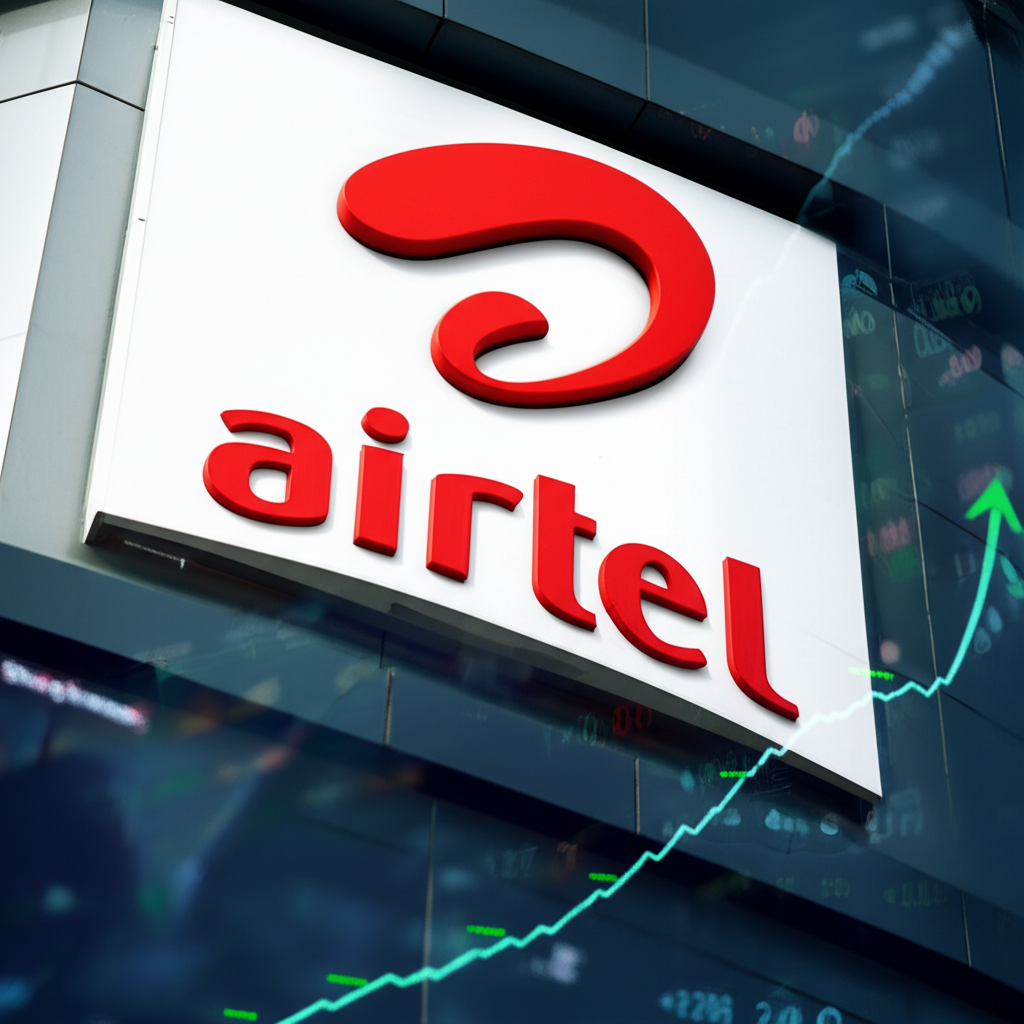Bharti Airtel is set to acquire 5G Telecom spectrum from a subsidiary of adani enterprises.
Introduction
The Indian telecommunications landscape is witnessing a significant shift with Bharti Airtel, one of India’s leading telecom operators, reportedly poised to acquire 5G spectrum from a subsidiary of Adani Enterprises. While the official details of the transaction remain undisclosed as of this writing, pending regulatory approvals and finalization of agreements, the potential implications are far-reaching for both companies and the broader telecom sector. This acquisition signifies a strategic move by Airtel, potentially bolstering its 5G network capabilities and expanding its footprint, while simultaneously presenting Adani Enterprises with an opportunity to monetize its spectrum holdings. This article delves into the various aspects of this potential deal, analyzing its impact on the financial performance of Airtel, the competitive dynamics of the Indian telecom market, and the regulatory environment that governs such transactions.
Recent Financial Performance
Bharti Airtel’s recent financial performance has been characterized by a blend of growth and challenges. The company has demonstrated consistent revenue growth, driven largely by increased data consumption and the adoption of 5G services. However, intense competition in the Indian telecom market, coupled with rising operational expenses, has put pressure on profitability margins. Examining Airtel’s quarterly and annual financial reports (available on the company website and stock exchanges) reveals fluctuations in earnings before interest, taxes, depreciation, and amortization (EBITDA) and net profit. A detailed analysis of these figures is crucial to understand Airtel’s financial health and its capacity to absorb the financial implications of the speculated spectrum acquisition from Adani Enterprises. Specific metrics such as subscriber growth, average revenue per user (ARPU), and debt levels will provide a more comprehensive picture of Airtel’s financial standing and its ability to finance this potential deal without significantly impacting its credit ratings or future Investment plans. Access to detailed financial statements will allow a more in-depth assessment of the company’s ability to make this acquisition.
Market Trends and Industry Analysis
The Indian telecom industry is experiencing rapid transformation, fueled by the rollout of 5G technology and the increasing demand for high-speed data services. The acquisition of spectrum is critical for telecom operators to expand their 5G network coverage and improve the quality of their services. A competitive analysis of the Indian telecom market, including the market share held by Airtel, Jio, and Vodafone Idea, is crucial to assess the strategic rationale behind this potential deal. This analysis would consider factors like spectrum availability in different regions, the competitive intensity in those regions, and the potential synergies between Airtel’s existing network and the spectrum acquired from Adani Enterprises. Reports from industry analysts like Counterpoint Research, IDC, and others provide valuable insights into market trends, competitive landscape, and future growth prospects of the Indian telecom sector. Understanding the overall market dynamics and the competitive positioning of Airtel will allow for a better evaluation of the strategic merits of the proposed transaction.
Sentiment Analysis of News Headlines
Analyzing the sentiment expressed in news headlines and articles related to this potential acquisition will provide valuable insights into market perception and investor confidence. A positive sentiment suggests a favorable market reaction, indicating that investors believe the acquisition will enhance Airtel’s value proposition. Conversely, negative sentiment might indicate skepticism about the deal’s potential benefits or concerns about the financial implications for Airtel. Tools and techniques for sentiment analysis, using both quantitative and qualitative methods, can be utilized to gauge the overall market response. This analysis should encompass news sources from various media outlets to avoid bias and obtain a comprehensive understanding of the prevailing sentiment. The sentiment analysis would contribute to a broader understanding of the market’s reception and its potential impact on Airtel’s stock price and overall valuation.
Regulatory and Macro-Economic Factors
The proposed acquisition will likely be subject to scrutiny from the Indian regulatory bodies, such as the Department of Telecommunications (DoT) and the Competition Commission of India (CCI). These bodies will evaluate the deal’s compliance with existing regulations, considering factors like competition, market dominance, and spectrum allocation policies. Macro-economic factors, such as interest rates, inflation, and overall economic growth, can influence the financial viability of the acquisition. High interest rates might make financing the deal more expensive, while economic uncertainty could impact Airtel’s ability to generate sufficient cash flow to service its debt. A thorough analysis of the regulatory framework and the prevailing macro-economic conditions is critical to assess the potential hurdles and opportunities associated with this acquisition. Understanding the potential regulatory delays, financial implications of macroeconomic changes, and overall government policies regarding telecom mergers and acquisitions would provide a more complete picture.
Risk Factors
Several risk factors are associated with this potential acquisition. The most significant risk is the failure to secure regulatory approvals, which could lead to the deal falling through. Other risks include integration challenges in merging the acquired spectrum with Airtel’s existing network, potential disputes with Adani Enterprises regarding the terms of the acquisition, and unforeseen technical issues related to the spectrum itself. The financial risk involves potential overvaluation of the spectrum, leading to a loss of investment for Airtel. Furthermore, the competitive landscape, characterized by aggressive price wars and continuous technological advancements, presents an ongoing challenge for Airtel. A comprehensive risk assessment will include an evaluation of these factors, their likelihood, and the potential impact on Airtel’s financial performance and strategic objectives. This will help in developing appropriate mitigation strategies.
Future Outlook
The successful acquisition of 5G spectrum from Adani Enterprises could significantly enhance Airtel’s 5G network capabilities, enabling it to provide better services and compete more effectively in the rapidly evolving telecom market. This strategic move may lead to increased market share, improved customer satisfaction, and better financial performance in the long term. However, the impact of the acquisition will depend on several factors, including the integration process, the competitive response from rivals, and the overall economic conditions. A detailed projection of Airtel’s future performance, considering the potential impact of the spectrum acquisition and other relevant factors, will provide valuable insights for investors and stakeholders. This projection should encompass various scenarios, taking into account different levels of success in integration, market competition and macroeconomic conditions.
Recommendations
Investors should carefully evaluate the potential benefits and risks associated with this acquisition before making any investment decisions. A thorough due diligence process is crucial to assess the financial implications, the strategic rationale, and the potential regulatory hurdles. The analysis should incorporate a detailed financial modeling exercise, incorporating various scenarios and risk assessments, to assess the impact on Airtel’s future cash flows and profitability. Once the complete financial details are made public, a proper comparison of Airtel’s valuation before and after the deal will reveal if the acquisition has added value to the company. Based on this comprehensive analysis, investors can make informed decisions about whether to maintain, increase, or reduce their holdings in Bharti Airtel. Continuously monitoring market sentiment, regulatory developments, and Airtel’s operational performance post-acquisition is also recommended.















0 Comments